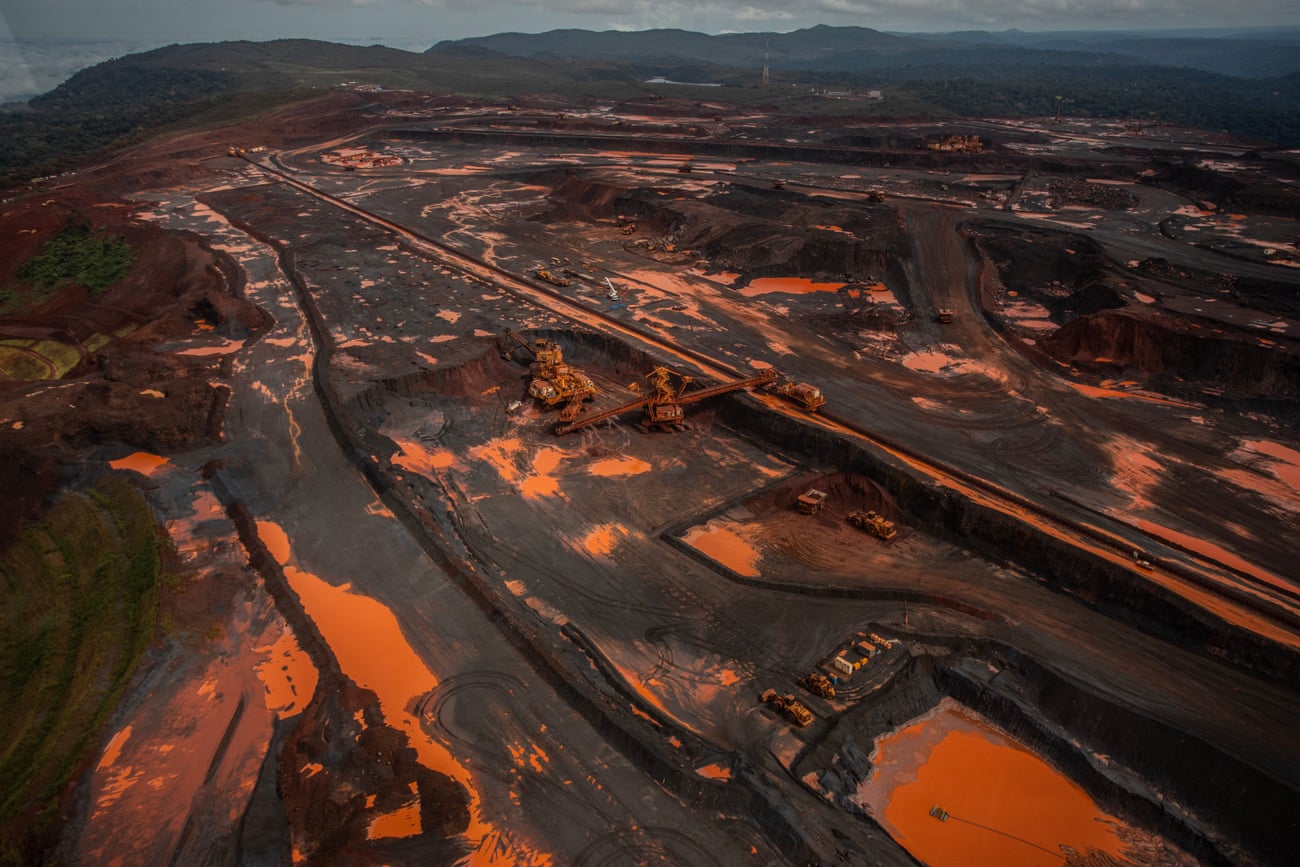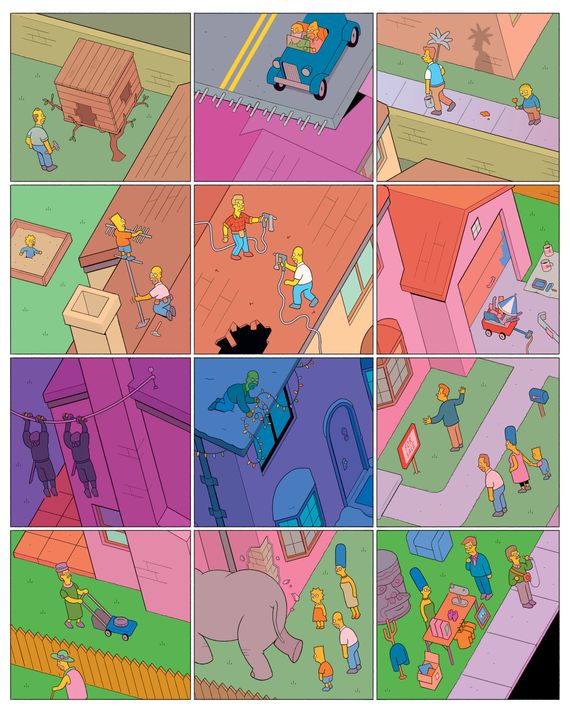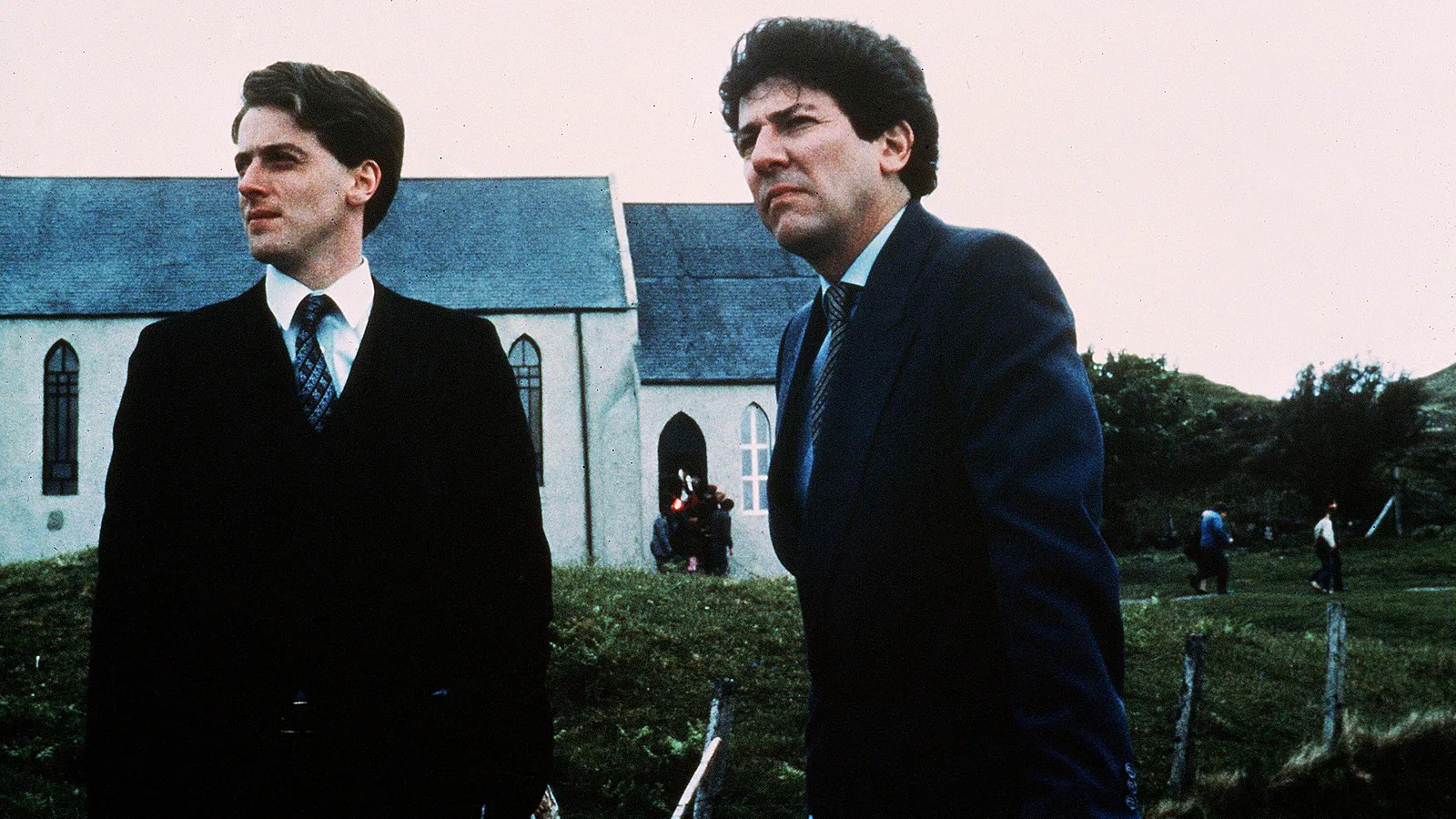A handful of global giants dominate the industrialisation of the Amazon rainforest, extracting tens of billions of dollars of raw materials every year, according to an analysis that highlights how much value is being sucked out of the region with relatively little going back in.
But even as the pace of deforestation hits record highs while standards of living in the Amazon are among the lowest in Brazil, the true scale of extraction remains unknown, with basic details about cattle ranching, logging and mining hard to establish despite efforts to ban commodities linked to its destruction.
From the world’s largest iron ore mine to a ranching industry that slaughters more than 6 million animals a year, the Guardian analysis – carried out as part of a joint project with Forbidden Stories to mark the anniversary of the killings of Bruno Pereira and Dom Phillips – shows how the world’s most biodiverse land is now also a home to industrial powerhouses. The firms are sources of economic growth and employment for the communities and for the country. But they are operating in an environment – the world’s largest rainforest and a critical carbon sink – that presents unusual challenges.
Read the rest of this article at: The Guardian
In May, I visited the offices of The Simpsons deep inside the Fox Studio Lot in Century City. I was the first reporter in many years to document how the show comes together. More precisely, I was the first reporter in many years to care. After eight seasons, from 1989 to 1997 — what connoisseurs agree is the classic period, the years of “Marge vs. the Monorail” and “Cape Feare” and “Mr. Plow,” from which an endless fount of memes is drawn even today — The Simpsons entered what you might call its Dark Ages. Whereas the classic period was a joke-a-minute spectacle that veered between absurdist physical gags and heartfelt family squabbles, the Dark Ages tried to maintain the joke density but lost the show’s emotional core. The result was an overwhelming blahness and deepening cultural irrelevance just as many shows directly inspired by The Simpsons took off.
That’s all changing. Every person I spoke to for this story — from Broti Gupta, one of the first writers on The Simpsons to have been born after the show’s premiere, to James L. Brooks, one of the series’ founders, to the former members of the No Homers Club fan community, infamous for complaining about the decline of the show — agrees that The Simpsons, in 2023, is undergoing a renaissance. The staff, working in the shadow of a looming writers strike when I visited, are putting out some of the most ambitious, poignant, and funny episodes in the show’s history — episodes that, after all these years, have managed to broaden our understanding of these familiar characters and why they remain so important to so many people. And thanks to the streaming era, a whole new generation is growing up bingeing The Simpsons, bolstering the sense that the show, once left for dead by critics, may really go on forever.
Read the rest of this article at: The Verge
The first time it happened, I assumed it was a Millennial thing. Our younger neighbors had come over with their kids and a projector for backyard movie night—Clueless, I think, or maybe The Goonies.
“Oh,” I said as the opening scene began, “you left the subtitles on.”
“Oh,” the husband said, “we always leave the subtitles on.”
Now, I don’t like to think of myself as a snob—snobs never do—but in that moment, I felt something gurgling up my windpipe that can only be described as snobbery, a need to express my aesthetic horror at the needless gashing of all those scenes. All that came out, though, was: Why? They don’t like missing any of the dialogue, he said, and sometimes it’s hard to hear, or someone is trying to sleep, or they’re only half paying attention, and the subtitles are right there waiting to be flipped on, so … why not?
Read the rest of this article at: The Atlantic
Inside the Meltdown at CNN
“How are we gonna cover Trump? That’s not something I stay up at night thinking about,” Chris Licht told me. “It’s very simple.”
It was the fall of 2022. This was the first of many on-the-record interviews that Licht had agreed to give me, and I wanted to know how CNN’s new leader planned to deal with another Donald Trump candidacy. Until recently Licht had been producing a successful late-night comedy show. Now, just a few months into his job running one of the world’s preeminent news organizations, he claimed to have a “simple” answer to the question that might very well come to define his legacy.
“The media has absolutely, I believe, learned its lesson,” Licht said.
Sensing my surprise, he grinned.
“I really do,” Licht said. “I think they know that he’s playing them—at least, the people in my organization. We’ve had discussions about this. We know that we’re getting played, so we’re gonna resist it.”
Seven months later, in Manchester, New Hampshire, I came across Licht wearing the expression of a man who had just survived a car wreck. Normally brash and self-assured, Licht was pale, his shoulders slumped. He scanned the room with anxious eyes. Spotting me, he summoned a breezy chord. “Well,” Licht said, “that wasn’t boring!”
We were standing in the lobby of the Dana Center, on the campus of Saint Anselm College. Licht, the 51-year-old chair and CEO of CNN Worldwide, had spent the past hour and a half inside a trailer behind the building, a control room on wheels from which he’d orchestrated a CNN town hall with Trump. Licht had known the risks inherent to this occasion: Trump had spent the past six years insulting and threatening CNN, singling out the network and its journalists as “fake news” and “the enemy of the people,” rhetoric that had led to death threats, blacklists, and ultimately a severing of diplomatic ties between Trump and CNN leadership.
Read the rest of this article at: The Atlantic
Few films have been as enduring as Local Hero. Released 40 years ago, the landmark Scottish film starring Hollywood legend Burt Lancaster put Scottish cinema on the map, launched the career of a then-unknown Peter Capaldi and showcased the nation’s incredible landscapes to the world.
Yet, the film was also remarkably prophetic. Decades before climate change was a widely discussed issue, Local Hero was one of the first contemporary films to draw attention to our impact on our environment.
Set in the fictional village of Ferness, Local Hero follows US oil executive “Mac” MacIntyre (Peter Riegert), who is sent to Scotland by his eccentric billionaire boss Felix Happer (Burt Lancaster) to buy the entire town and its surrounding areas to build an oil refinery. As he spends more time with the locals, Mac slowly falls in love with his adopted surroundings, and begins to question his role, its ethics, and his entire worldview.
Eerily relevant in our era, the climate satire shows almost no citizen standing up to the oil conglomerate. There is no environmental protection agency that steps in, no law against the oil company’s intended destruction of the land.
The film began with Chariots of Fire and The Mission producer, David Puttnam, whose films have been nominated for 26 Oscars. Puttnam had read an article in The Observer about a Scottish man’s battle against an oil giant, and was determined to make a film that addressed the unethical behaviour of oil firms and their toxic impact on natural landscapes.
Puttnam, who had been an environmentalist since the 1970s, and was president of the Council of Protection of Rural England, saw the potential for a film that directly addressed environmental issues. “I was really interested in the idea that a local accountant could sue a major, major international oil company and win on environmental grounds. I thought that was great. It was really a David and Goliath story,” Puttnam tells BBC Culture.
Puttnam had seen the debut feature of then largely unknown Scottish director Bill Forsyth, That Sinking Feeling, produced for £5,000, which he helped Forsyth sell to the BBC, and wanted to work with him. Sparked by the article he’d read, Puttnam brought the story to Forsyth, along with a proposal for a film set in Scotland dealing with ecological issues. “We hired two journalists, one on the East Coast, one on the West Coast, to give us cuttings or any other stories they had about communities being affected by a major oil company or major conglomerate coming in. And we were able to collect quite a lot of bits and pieces, and Bill then built that collage into the screenplay,” Puttnam remembers.
Read the rest of this article at: BBC Culture







